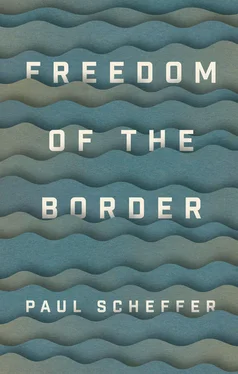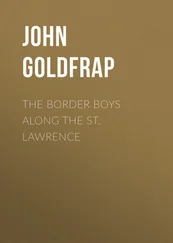Behind his observation about the tragedy of humanism lies a major question about our belief in progress. Does history present evidence of improvement, step by step, or does the same evil arise repeatedly, taking a different form each time? Do we underestimate progress when we say that the veneer of civilization is thin? Or is the progress we experience largely material, while societies show no improvement in a moral sense?
Wolf’s work is imbued with his insight that humanism is always a form of pessimism. He was inspired in this belief by Arthur Schopenhauer, about whom he published a lengthy essay. He was not alone in being strongly influenced by this particular philosopher. Author Thomas Mann, for example, admired in Schopenhauer’s work the connection between ‘Melancholie und Menschenstolz’ (melancholy and human pride). In a time in which human values were being trodden underfoot – this was 1938 – a combination of pessimism and humanism was of incalculable importance. Humility features prominently in a philosophy that contrasts the impermanence of things with an arrogant faith in progress.
My family history, incidentally, never prompted me to condemn everything that tasted or sounded German. I was impressed by the conscientious way in which our neighbours were dealing with their past, and in the 1980s I became convinced that German unification is part of the integration of Europe. In those years many people saw the division of Germany as nothing short of a moral precept, a form of compensation paid to the rest of Europe.
I got to know the work of Martin Walser, and later the writer himself. He convinced me that the oppression of seventeen million people in East Germany could not be tacitly accepted. 3It was impossible to justify the division of his country by regarding it as a war debt. He abhorred the position of his fellow author Günter Grass, who believed that because of Auschwitz the Germans had lost their right to self-determination. 4No amount of wrongdoing can be avenged by making an entire nation a prisoner of its past, Walser said. The often blunt way in which Auschwitz was invoked in every conversation about Germany led him to suspect that its memory was being used for political purposes. 5
I came upon a comparable idea in the work of German historian Arnulf Baring, who in a reference to the peace movement wrote about his country’s ‘new delusions of grandeur’. 6Precisely because a moral low had been reached in the war, he believed, many West Germans thought their country had become Europe’s moral benchmark. His criticism confirmed my impression that there was too much well-intended browbeating among the Germans. I’ve come upon it on several occasions myself, especially in the censorship of unwelcome opinions. If today’s Germany causes me any discomfort, then it’s precisely because of its moral overestimation of itself.
Longer stays in Paris and Warsaw – two cities in which I worked as a correspondent – taught me a great deal about the historical significance of borders. My time in Poland especially, in the early 1980s, changed my view of the world. From the history of a country that had been wiped off the map by its neighbours on several occasions, and after the war was shifted Westwards, I deduced that borders are bound up with existential fears. To this day people in Poland are extremely sensitive to any perceived infringement of the borders, as evidenced by their greater than average dislike of migrants and refugees.
After the fall of communism, a Polish minister said to me, ‘Because of German unification, we Poles, like the Czechs, share a border with the West.’ That sentence summed up many experiences, but above all a sense of vulnerability that has been a feature of the country for hundreds of years. It’s a fear that people in the more secure parts of Europe cannot truly appreciate, but we do need to make the effort to understand that Europe looks very different from Warsaw to the way it looks from Brussels. I learnt from Polish writer Ryszard Kapuściński that for the people of Eastern Poland the Second World War began not with their country’s invasion by Hitler but with its invasion by Stalin. He also made clear to me that such experiences sharpen awareness. ‘Fear has big eyes’, he wrote later. 7
My time abroad changed my impression of the Netherlands. The widely shared notion that the Dutch live in a country without borders brings with it a somewhat distorted view of the surrounding environment. It goes back a long way. In a book that he published at the end of the First World War, in which the Netherlands remained neutral, legal expert Joost van Hamel was critical of this cast of mind. ‘Destined to be a place of peace and rest, our statecraft seemed more and more to regard the whole world as having reached a resting point’, he wrote. ‘All too often we forget that this is far from always the fate of countries and peoples. We must not turn our eyes away from the perpetual element of unrest and upheaval that is fomented repeatedly in a region like Europe.’ 8
A century later, those words have lost none of their force. The Dutch have a tendency to expect other countries to adopt their point of view, which suggests they are less good at looking beyond their own borders than they tend to think. By spending time abroad and especially by working in other countries, I became better able to see the self-absorption of my own. My provisional conclusion was that true cosmopolitanism lies not in denying that borders exist but in exploring them and attempting to cross them.
That was the source of my irritation at the words chosen by Dutch author Harry Mulisch at the opening of the Frankfurt Book Fair in 1993. ‘When in this country a group of people bellows “Deutschland! Deutschland!” it’s terrifying’, he said. ‘So the Federal Republic is all right, but Germany is not to the same degree. The notion that people in my country, except in a football stadium, would yell “Holland! Holland” is completely ridiculous. So Holland isn’t doing too badly.’ 9
Mulisch was cheerfully treating nationalism as a fallacy, and this seemed to obviate the need to think any further about the phenomenon. There are quite a few countries where such fallacies have solidified into traditions. It was never possible to develop a sense of living a borderless life in those countries, because the achievement of independence was accompanied by violence. Mulisch was not saying much more than that the Dutch tend to believe the Netherlands is not truly threatened, and as a consequence they have lost the ability to recognize a threat at the rare moments when danger arises.
Mulisch’s speech was an illustration of Dutch conceit: we are self-satisfied, in fact we regard our country as a guide to others and judge them accordingly. 10In the years since then, we have failed to realize how much hidden pride, of a kind we might safely call nationalism, is bound up with our apparently relaxed self-image. I can understand why Mulisch’s speech in Germany was perceived by so many people rather more as an expression of distrust than as evidence of openness. I should add that quite a few of our neighbours to the East shared his distrust of their recently united country; like Mulisch, they feared the return of nationalism.
In a foreign country it’s not easy to read between the lines. I understood this better than ever when I started to investigate divided Belgium. If we take no interest in the linguistic conflict in that country, what can we hope to say about Europe as a whole? In Flanders you never need to remind anyone that borders matter. From time to time I’ve asked liberal politicians like Guy Verhofstadt and Karel De Gucht what lessons for Europe they derive from the long process that is the disintegration of Belgium. They usually fail to give satisfying answers. But how can they speak with such confidence about ever closer union between almost thirty countries when no one has yet succeeded in curbing the nationalism of tiny Flanders?
Читать дальше












